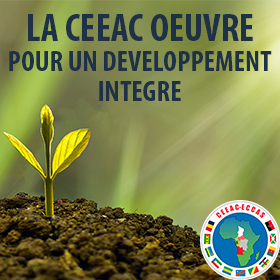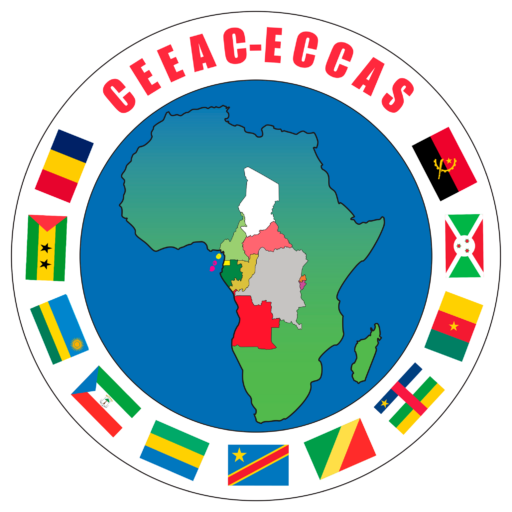Who are we?

The institutional reform of the Economic Community of Central African States (ECCAS) was ordered by the Conference of Heads of State and Government of ECCAS during its sixteenth ordinary session held in N’Djamena on May 25, 2015. On this occasion, the Conference had approved the proposal made by the General Secretariat “to initiate a profound reform of ECCAS” and marked its agreement for the immediate start of this process under the authority of the President-in-Office of ECCAS, His Excellency Ali Bongo Ondimba, with the support of the Ministers responsible for the integration of Member States and a firm of experts.
This institutional reform aimed to improve the effectiveness and efficiency of ECCAS with the aim of achieving a major qualitative leap in the governance of the Organization to make it a viable and strong Regional Economic Community, with an Executive at the architecture renovated and adapted to current challenges. This objective falls within the framework of strategic axis n°9 of ECCAS Vision 2025, which recommended by 2015, to transform the General Secretariat into a Commission to enable it to respond to new strategic and integration operations.
It has two major challenges, in particular:
- Integrate into a single and harmonized legal and institutional framework, all the components of the regional integration process within ECCAS, namely economic and trade integration, political integration and social stability, physical integration and socio-cultural integration.
- Contribute to accelerating the process of rationalization of Regional Economic Communities (RECs) in Central Africa in connection with, on the one hand, the Decision of the VII Summit of Heads of State and Government of the African Union, held from June 25 to July 2, 2006 in Banjul, and on the other hand, the will of the Heads of State and Government of ECCAS materialized by the launch of the rationalization process under the enlightened leadership of the President of the Republic of Cameroon, dedicated president of the said process.
For the conduct of this process, the Conference set up a Steering Committee Decision No. 83/CEEAC/CCEG/XVI/17 of 2 June 2017 on the creation, powers, composition and functioning of the Steering Committee for the Institutional Reform of ECCAS. The Steering Committee was assisted by a Technical Committee of Experts and a Technical Unit composed of the General Secretariat of ECCAS assisted by a specialized firm. The Steering Committee was responsible for ensuring the coordination and monitoring of the implementation of the ECCAS institutional reform process.
At the end of the first phase of institutional reform, two major results were achieved.
Firstly, the revision of five fundamental texts of the Community, namely, (i) the revised Treaty establishing ECCAS ratified by 10 Member States and which entered into force on August 28, 2020, (ii) the draft organic framework of ECCAS, (iii) the draft revised Staff Regulations of ECCAS, (iv) the draft text revising the Financial Regulations of ECCAS and (v) the draft revised Protocol relating to the Peace and Security Council for Central Africa (COPAX).
Secondly, the first phase of the reform resulted in the appointment by the Conference of Heads of State and Government, during its 17th Ordinary Session, held on July 31, 2020, of the seven members of the ECCAS Commission as well as he follows.
| Job title | Last name and first name | Country |
| President of the ECCAS Commission | M. Gilberto Da Piedade VERISSIMO | Republic of Angola |
| Vice President of the ECCAS Commission | Mrs TATCHOUOP BELOBE Francisca | Republic of Equatorial Guinea |
| Commissioner for Political Affairs, Peace and Security of the ECCAS Commission | M. Mangaral BANTE | Tchad Republic |
| Commissioner for the Common Market, Economic, Monetary and Financial Affairs of the ECCAS Commission | Mr. KANIMBA François | Republic of Rwanda |
| Commissioner for the Environment, Natural Resources, Agriculture and Rural Development of the ECCAS Commission | Mr. TABUNA Honoré | Republic of Congo |
| Commissioner for Territorial Development and Infrastructure of the ECCAS Commission | Mrs NGAKONO Marie Thérèse Chantal, wife MFOULA EDJOMO | Republic of Cameroon |
| Commissioner for the Promotion of Gender, Human and Social Development of the ECCAS Commission | Mrs KAPINGA-Yvette NGANDU | Democratic Republic of Congo |
For the finalization of the reform, the Conference of Heads of State instructed the President of the ECCAS Commission to accelerate the establishment of the other institutions of the Community provided for by the revised Treaty, the revision of the remaining fundamental texts and drafting of the necessary application texts.
The revised Treaty recommends the establishment of the Community Parliament of ECCAS, the Community Court of Justice, the Community Court of Auditors, a Central Bank and a Development Bank.
Automatic translation


